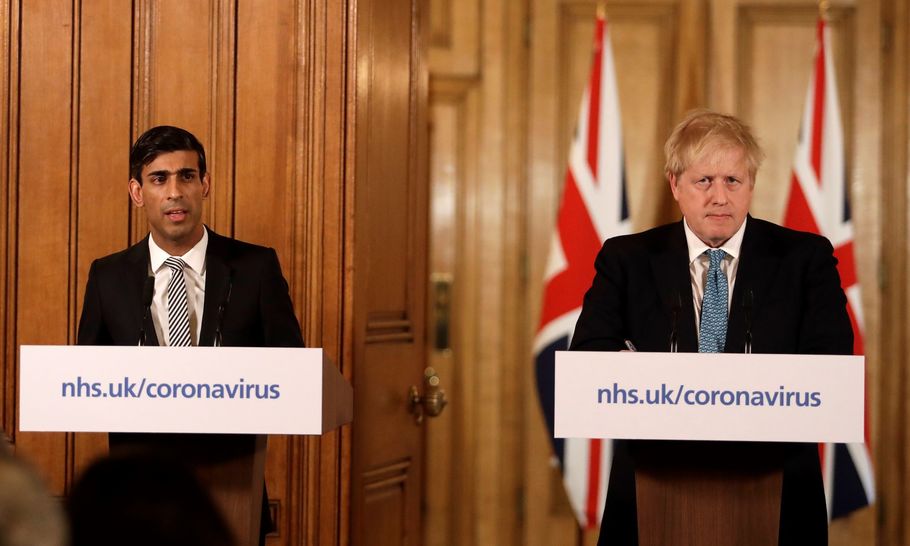One thing after another

(PA Images)
At one point in Alan Bennett’s play The History Boys, the class is asked to define history. One boy thinks, and then replies, “It’s just one “f**king thing after another.”
That feeling has been writ large on the expressions of a number of senior government ministers. Last Wednesday, a confident, collected Rishi Sunak presented the Budget to Parliament, his first as Chancellor. It included a £30 billion package to help deal with the economic effects of the coronavirus outbreak. Yesterday, a tired, harrowed Rishi Sunak outlined a series of guarantees worth a further £330 billion — the equivalent of 15 per cent of UK GDP. In less than seven days, he’d gone from boasting about “getting it done” to vowing to do “whatever it takes”.
Earlier in the Commons, Foreign Secretary Dominic Raab, often brash in manner, stood at the Despatch Box looking much more timid as he discussed repatriating Brits trapped abroad. He advised against all but the most essential travel. He barely returned to his normal self when Emily Thornberry tried to bring down the tone by making cheap political jibes, something that roused irritation in a Commons Chamber that had been, for most of the session, disconcertingly silent. “I think we have done quite a good job in this House of trying to adopt a bipartisan approach,” Raab retorted. “Whether domestically or internationally, finger-pointing just does not help in any shape or form.”
Indeed so — but it’s hardly been the start to the “roaring twenties” this government hoped for when it won its landslide. Those promises of a bright post-Brexit future for us all seem a distant prospect.
One thing after another….
There is little doubt that following his impressive showing at the Budget, Sunak’s performance yesterday will have only further enhanced his credentials. But the coronavirus pandemic has made this young Conservative chancellor shake the magic money tree and his repeated insistence that the government will do “whatever it takes” to ride out this crisis indicates there could be more to come. “Whatever the NHS needs, it will get,” he vowed. “I promised to do whatever it takes to support our economy through this crisis and that, if the situation changed, I would not hesitate to take further action,” he later told MPs.
Sunak was — fairly — criticised by the Speaker for not announcing his new provisions to Parliament first. However, his fluent display at the press conference will hopefully make the businesses devastated by this crisis feel that help is available. Because Sunak, without doubt provided a reassuring presence next to Boris Johnson, who was flanked on the other side by the ever-impressive Chief Scientific Adviser Sir Patrick Vallance.
Alastair Campbell argued on these pages yesterday that “Johnson seems to be finding it hard to switch from normal government to crisis management government”. He’s got a valid point, but I’m not sure the situation is being handled quite so poorly. That said, while Boris Johnson is no Donald Trump, I do not think that he has got every part of the messaging right. There has undoubtedly been confusion.
For instance, at one moment during yesterday’s press conference, Sky’s Deputy Political Editor Sam Coates asked three questions, addressing each person on the panel in turn. Of Boris Johnson, he wondered “does the buck stop with you?” Johnson allowed Sunak and Vallance to answer first, before confirming emphatically that the buck does, in fact, stop with him. It felt like a weak moment for Johnson. After all, he’s a Prime Minister who thought he’d been spending the next few years in total control, getting whatever he liked through the Commons. This must seem to him a very different kind of experience.
How this government continues after this crisis ends — and it will end — is uncertain. One thing is clear though: Rishi Sunak is going to be a big part of that answer.





